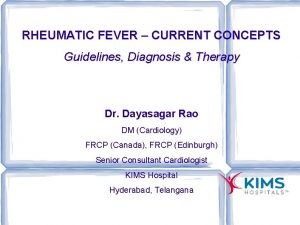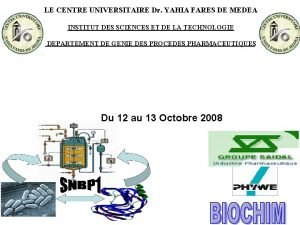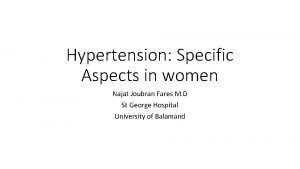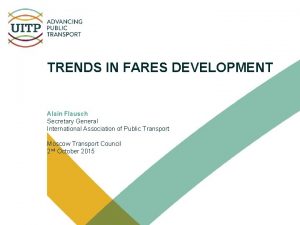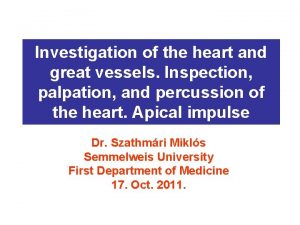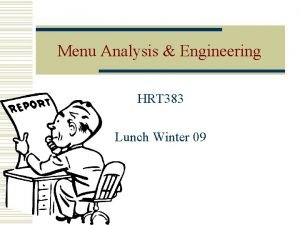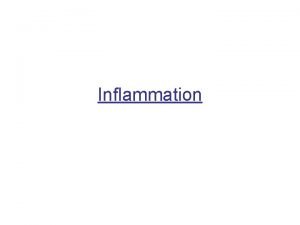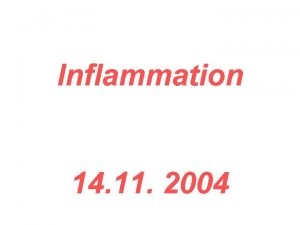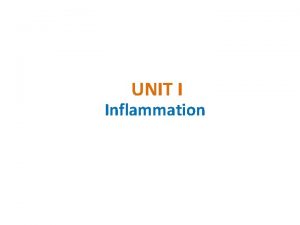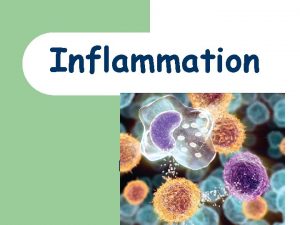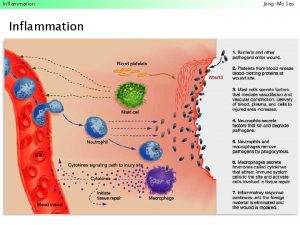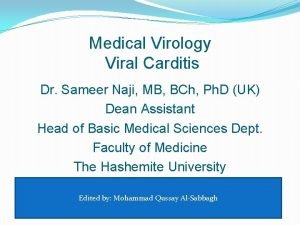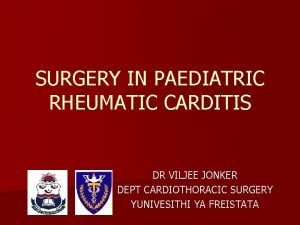Carditis Dr Fares Carditis inflammation of the heart














- Slides: 14

Carditis Dr. Fares

• Carditis: inflammation of the heart – Pericarditis: inflammation of the pericardium – Myocarditis: inflammation of the myocardium – Endocarditis: inflammation of the endocardium

Causes of pericarditis • • Acute, nonspecific (idiopathic) Infective: a) bacterial, b) viral, c) other infections Immunologic: a) Rheumatic fever, b) other Traumatic: a) uremic, b) myxedema, c)neoplastic Neoplastic Myocardial infarction Connective tissue disorder

Infectious Pericarditis • Acute , chronic • Etiology: – Most common viruses: enteroviruses – Most common bacteria: staphylococcus, strep, and Neisseria

Pathogenesis • Micro organisms reach the pericardium by: – Blood – Direct extension from lung (pneumococci) – Direct inoculation during surgery or trauma

Pathology • Acute serous or serofibrous pericarditis (usually viral) mild inflammatory reaction associated with focal damage to the adjacent myocardium – The response varies: small amount of serous fluid with mononuclear cells and fibrinogen to large neutrophil rich, bloody effusions – Mild fibrosis and adhesion between visceral and parietal surfaces – Constrictive pericarditis (rare) – Usually self limiting and rarely fatal • Acute purulent pericarditis (usually bacterial) – The purulent material contains large number of neutrophil in a large volume of effusion – Healing is associated with extensive fibrosis that may progress to chronic constrictive pericarditis – The mortality rate is 50%

Pathology • M. tuberculosis • 5% of cases with pulmonary TB will have pericardial involvement • Early granulomatous stage: large pericardial effusions (>300 ml), serosanguinous, mononuclear cells • As the disease evolves the inflammatory process become chronic– fusion of parietal and visceral pericardium– consecutive pericarditis and circulatory failure


? ? • Acute serofibrous pericarditis – – – – • Acute purulent pericarditis Chest pain -little , chest pain Rapid in onset, persistent : -Fever/chills from underlying hours to days infection Worse during inspiration and -cardiac tamponade: recumbency but improves 1. dyspnea with leaning forward 2. agitation In the upper abdomen over 3. orthopnea the stomach and maybe sharp, dull constriction and/or 4. cough crushing making clinical -Pericardial friction rub- less than differentiation from mi 50% of patients difficult -Pericardial friction rub triphasic Fever not prominent sound that resembles scratches or… Malaise …




Treatment • Bed rest • Pain control with NSAIDs • Abx based on the infecting agent and its sensitivity pattern • +/- surgery

